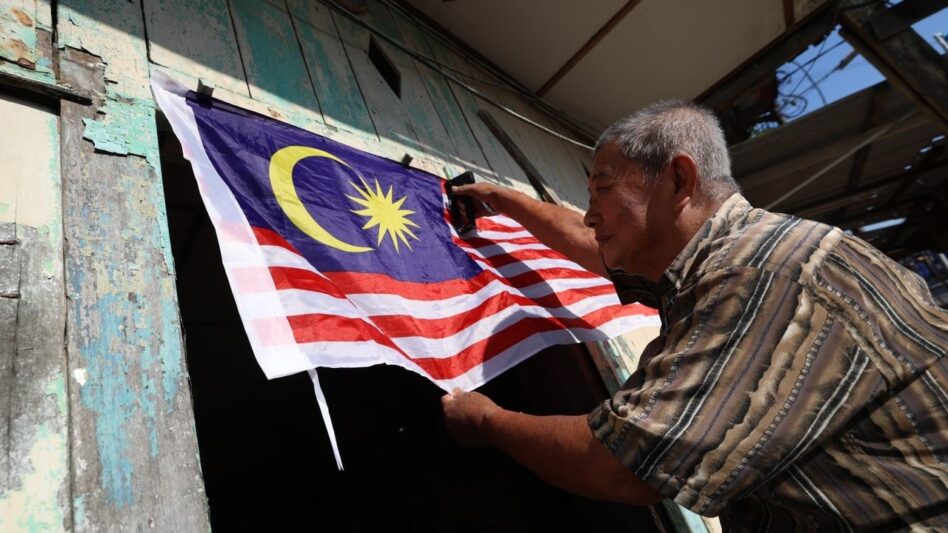PATRIOTISM, often regarded as a cornerstone of national unity, is a sentiment that governments worldwide seek to measure and cultivate.
Yet, the challenge lies in translating such an abstract and deeply personal concept into meaningful metrics, especially when the tool itself is as new and untested as the Patriotism Index in Malaysia.
Recently introduced by the Higher Education Ministry, the Patriotism Index seeks to assess the level of patriotism among third-year university students, positioning itself as a bold but controversial attempt to quantify a sentiment that resists easy measurement.
While this initiative supposedly promotes national pride and cohesion, its utility is undermined by the inherent vulnerability to political manipulation, turning it into a potentially divisive and superficial exercise.
Worse, as a tool reliant on opinion-based surveys, the Patriotism Index struggles to provide meaningful insights, making it largely irrelevant in addressing deeper societal issues.
Its exclusive focus on students raises questions about whether the index effectively captures a broad perspective on patriotism or risks alienating its primary participants through a potentially narrow and disconnected approach.
The risks of political manipulation

- High scores as propaganda
A high score on the Patriotism Index is easily framed as evidence of the government’s success in fostering national unity. It allows leaders to present the index as a validation of their policies, regardless of whether these policies genuinely contribute to patriotism.
For example, a government could use high scores to mask deeper societal issues such as rising inequality, political dissatisfaction, or regional disparities, claiming that patriotism is thriving despite these challenges.
- Low scores as a political weapon
Conversely, a low score can be strategically used to blame opposition parties, external influences, or even societal groups for a perceived lack of patriotism.
These narratives shift accountability away from systemic shortcomings, such as ineffective governance or failures in education policy. Worse, it might justify the implementation of stricter controls over public narratives, such as increased censorship or tighter regulation of educational content, under the pretext of protecting national unity.
- Selective interpretation
The data from the index can be selectively interpreted to suit specific political agendas. For instance, variations in patriotism scores across regions, ethnic groups, or age demographics might be highlighted to support divisive policies or narratives.
If one group scores lower, it could be unfairly criticized or targeted for special interventions, creating further polarization instead of fostering unity.
- Shifting accountability
Regardless of the results, the government can use the Patriotism Index to reinforce its narrative. High scores bolster its legitimacy, while low scores allow it to deflect responsibility by pointing fingers at others.
This dual-purpose framing diminishes the index’s potential to serve as a genuine diagnostic tool for improving national cohesion.
Why the Patriotism Index lacks relevance
- Narrow scope of measurement
The Patriotism Index is hindered by its narrow scope of measurement, which limits its ability to provide a comprehensive understanding of patriotism.
By focusing exclusively on third-year university students, the index overlooks other demographics, such as working adults, rural populations, and older citizens, who may express patriotism differently.
This restricted focus also fails to capture regional, cultural, and socio-economic nuances that are essential in a diverse nation like Malaysia.
Furthermore, its reliance on opinion-based surveys prioritizes surface-level sentiments over actionable expressions of patriotism, such as civic engagement or community service.
Without incorporating behavioural data, the index risks reducing patriotism to symbolic gestures like pride in the flag or anthem, rather than substantive contributions to society.
Additionally, the index’s snapshot approach does not account for how patriotism evolves over time, missing the influence of broader political, economic, or social developments.

- Scores provide no meaningful insight
High or low scores on the Patriotism Index fail to reveal the root causes of patriotic sentiment or discontent.
Without understanding the underlying factors driving the results – such as economic inequality, distrust in institutions, or generational differences – the scores remain superficial and irrelevant.
- Distracts from real issues
By focusing on patriotism scores, the index diverts attention from addressing systemic problems like governance challenges, regional inequalities, or gaps in civic education. Instead of fostering meaningful change, it creates an illusion of national unity.
- Lacks credibility among students
The mandatory nature of the survey, coupled with its perceived bias and limited outcomes, erodes trust among students. Many may view it as a formality or a political tool rather than a genuine effort to understand and enhance patriotism.
Moving beyond symbolism
The Patriotism Index, as it currently stands, is a tool mired in irrelevance and vulnerability to political manipulation.
Its reliance on opinion-based surveys and narrowly focused symbolic metrics limits its ability to address the complexities of patriotism in Malaysia.
By incorporating behavioural data, emotional attachment, cultural dimensions, and deeper engagement with students, the index can evolve into a meaningful initiative.
Without significant reforms to ensure transparency, credibility, and meaningful engagement, the Patriotism Index risks being dismissed as a superficial exercise.
To genuinely foster national unity and pride, the Patriotism Index must evolve into an initiative that prioritizes substance over narrow symbolism, empowering students as active participants in the nation-building process. – Jan 22, 2025
The author is a Senior Lecturer at the Department of Syariah and Management, Academy of Islamic Studies, Universiti Malaya.
The views expressed are solely of the author and do not necessarily reflect those of Focus Malaysia.
Main image: Unsplash/Ansari Muljadi









